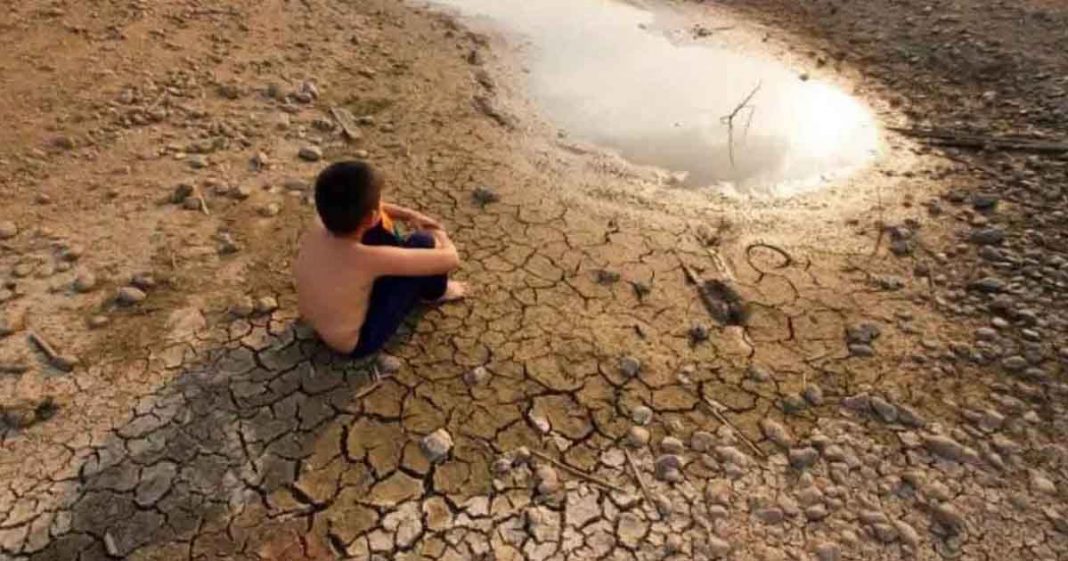Pakistan is the fifth largest country in the world as its current population is about 212 million people. According to the census of 2017; Pakistan is on the list of the top ten countries affected by climate change.
“Climate change is coming faster than our response,” said Secretary-General of United Nations Antoine Gutters during his speech on climate summit.
Pakistan is supposed to have about 25% forest in the country, however, there is an acute shortage of forest which is about 3%. There is a dire need for tree plantation in the country on war footing steps to mitigate the effects of climate change.
Read more: Recreating ‘Native Forests’ using the Miyawaki Forest
Dire conditions in Pakistan
Basically, Pakistan is an agricultural country where 70% of the population is living in rural areas. Moreover, the Indus basin region is more vulnerable due to climate change effects. It is the main source of agriculture in Pakistan.
Glaciers are also melting at a high rate all over the world due to global warming.
A few years ago the greenbelt of Malir was famous for its vegetables and fruits now it has been converted into commercial activities. The water level of Malir is depleting day by day and land degradation is at the peak.
Read more: Water Wars – A battle for Pakistan
Furthermore, Karachi is the biggest city in Pakistan and it has become a concrete city due to deforestation and the non-availability of trees.
The ecosystem of Karachi city has been destroyed due to heatwaves and air pollution. Moreover, the condition of the coastal belt of Karachi is not so good. Mangrove trees are being used as fuel and cattle feed. The direct inflow of industrial waste into the sea is creating problems for marine life.
Due to air and water pollution, sea level is rising in Thatta and Badin district, the agricultural land is becoming part of the sea. Therefore, this situation is endangering food security in Pakistan.
Read more: Food security in danger: Pakistan Economy Watch
Crises all over the world
According to the report of the World Food Program, 36% of the pollution is facing the huge challenge of food security and 20% of the population is undernourished. Moreover, 44% of children under the age of 5 are stunted.
Apart from this, 54% population of Afghanistan is living in poverty 17 million people are facing nutrition problems and 41% under 5 children are stunted, and 1.3 million Iraqi people are displaced by civil war and 1.77 million people are facing food security problems.
Read more: After years of war Iraq now battles corruption
In North Korea, 11 million people are undernourished and 1 in 5 children are stunted. In Yemen the situation is the same; 20 million people are facing hunger, 24 million people needed humanitarian assistance in 2020 and 16 million people are facing food security problems due to climate change effects, civil wars and low economic growth are challenges for the whole global village.
Furthermore, due to climate change, the eastern black sea area of Turkey is facing a rise in sea level and unprecedented floods are creating problems for the people of Turkey. In Africa, Libya is facing water shortage and supply of water from north to south on the risk of terrorist groups as they are exploiting and creating water problems for the people of Libya.
Read more: Yemen crisis: UN relief agencies need $2.4 bn
Egypt is an agricultural country but facing an acute shortage of water. The population of Egypt was 27 million and now it has reached 104 million people but water availability is the same which is creating a problem for safe drinking water and agriculture use. So there is a need for desalination plants for the future requirements of Egypt and livelihood purposes.
A need for alternative energy
Currently, the world is changing from fossil fuel to alternative energy like electric cars and bikes to combat air pollution through these steps.
Now it has become important for Pakistan that new trends and technology may be adopted to mitigate the climate change crisis. Also, the world economy is directly linked with SDG Goals like Climate Action, etc.
Read more: Pakistan’s poverty alleviation, achievement of SDGs govt’s priorities: FM
Due to climate change, the world is facing water shortages, drought, floods, intense rainy spells, and air pollution. These are hampering the growth of the world economy badly.
Pakistan must implement the Paris agreement and establish electric car plants similar to TESLA, Hyundai, Renault’s Zoe, Volkswagen, etc. In Pakistan, we need to tackle the emission of carbon dioxide which is creating air pollution and resulting in the worst air quality of the big cities of Pakistan.
Read more: Pakistan not invited to Biden’s virtual climate summit
Now it is time to act on climate change with seriousness otherwise it will impact the world economy as badly as a natural disaster. This is the time to take inclusive steps towards reducing the threat of climate change towards the whole globe.
The writer holds an MPP from KDI School of Public Policy and Management Seoul, South Korea, an MA in International relations, and an LLB from Shah Abdul Latif University KhairPur. Currently, he is working as an Assistant Director in the Board of Investment Pakistan. The views expressed in the article are the author’s own and do not necessarily reflect the editorial policy of Global Village Space.














